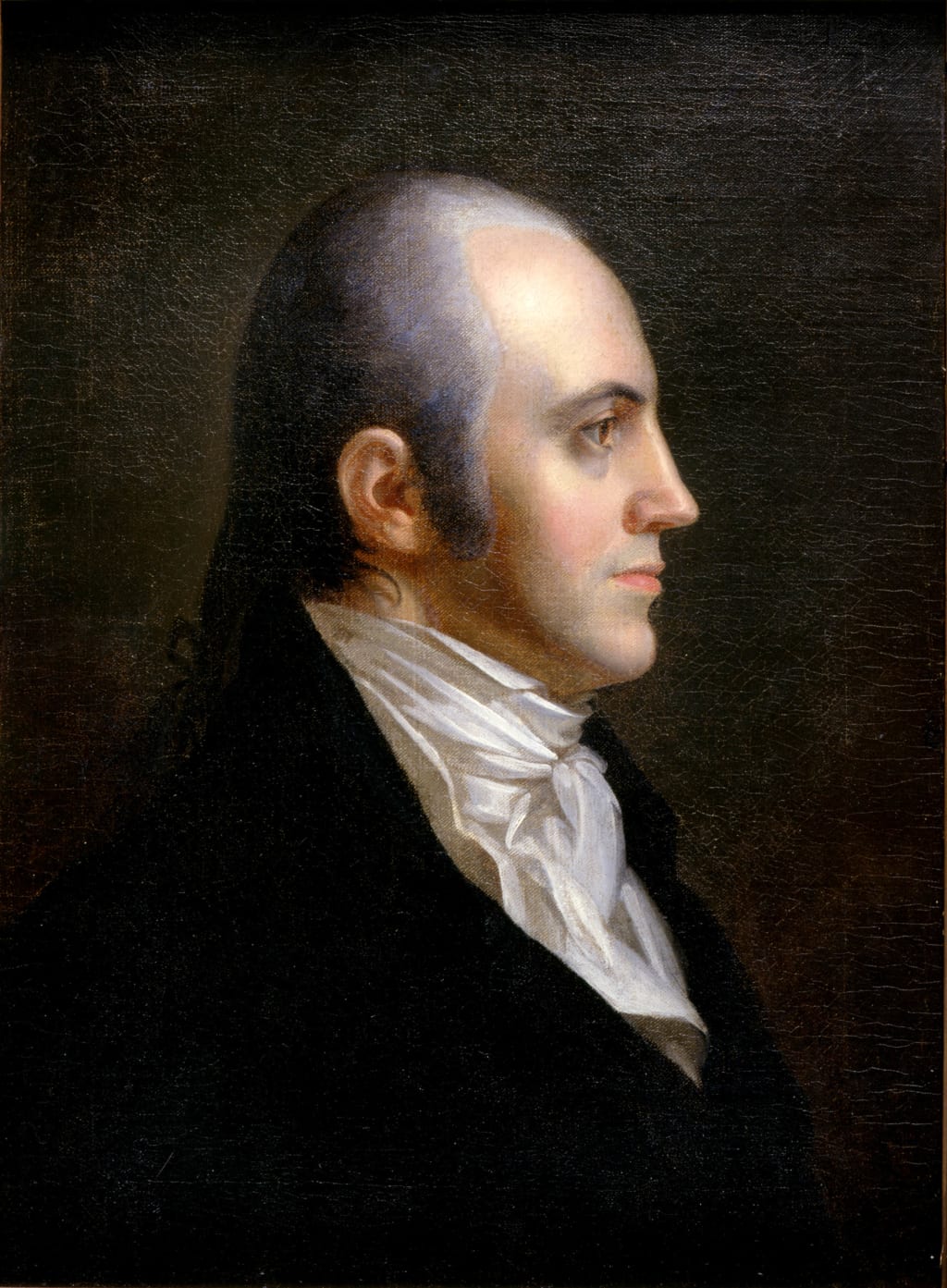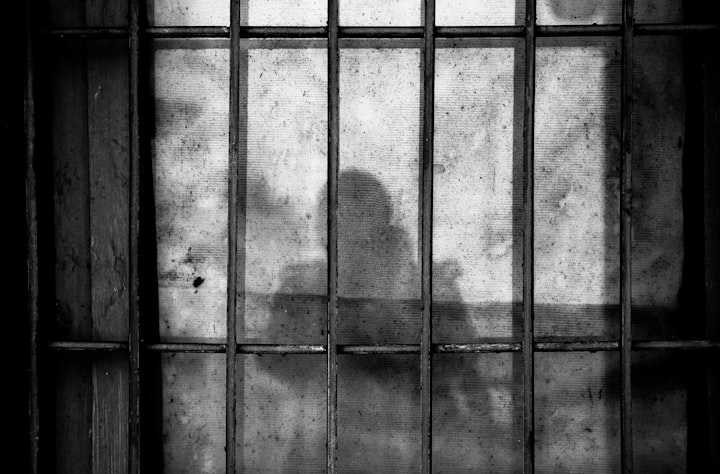The Crimes of Aaron Burr
Cast as America's villain, history and the truth has not been kind to one founding father.

"Well, hate the sin, love the sinner..." Alexander Hamilton sings in the hit musical based on his life. While the lyrics are pointed at Thomas Jefferson and James Madison, they could as easily apply to Aaron Burr. Who after a heroic period in the Revolutionary War became one of the most reviled criminals in the history of the United States. His crime spree starts with a conspiracy to "steal" the presidency and ends with a treason trial that would shock the young country.
Once upon a time, presidential candidates did not choose their own vice presidents, the person who got the second most votes became the VP. Imagine Hillary Clinton as Donald Trump's second-in-command. That's a sitcom waiting to happen. Thomas Jefferson and Aaron Burr were both running for president in 1800. Things were tense and neither man was able to quite reach the threshold needed for a win. So, the election fell into the laps of Congress. Burr allegedly devised a plan to secure the win and keep Jefferson from the room where it happened. Yes, the soundtrack to Hamilton is playing right now. In his mind, Burr believed that he was due the presidency and he would get it no matter what.
To that end, it is believed that Burr enlisted the help of friends to sway members of the House of Representatives to vote for him over Jefferson. Supporting this theory is that Burr's good friend William Van Ness wrote a letter to a colleague, one Edward Livingston, encouraging him to vote for Burr and swing the election. While there is not enough hard evidence to support this theory, there is more than enough circumstantial evidence to believe that Burr was a part of, if not the leader, of this conspiracy. Ultimately it was unsuccessful, mostly because Hamilton campaigned so hard against him and changed the minds of some that were set to vote for Burr, including Livingston. Jefferson won the election in a landslide, much to the dismay of Burr.
Instead of learning that cheaters never win, Burr decided that the only reason he lost was because of Hamilton. Not one to suffer imagined injustice in a dignified way, Burr decided that his frenemy needed to either apologize or die. There were no negotiations for this, it had to be one or the other. When Hamilton declined to recant or say he was sorry for hurting Burr's feelings, a duel was agreed on. Since dueling had been outlawed in New York, New Jersey was chosen as the locale for the historic face off. Duels were also illegal in Jersey but the penalty was less severe than the automatic execution in New York. As the day approached, Hamilton swore that he would not be aiming his pistol at his newly declared rival.
Observers surrounded Burr and Hamilton as the duel began. The men faced one another and two shots rang out. One hit Hamilton just above the hip, and that ultimately led to his death. No one knows for sure who shot first, but Hamilton had written many letters and published essays stating that he would not be aiming for Burr. This seemed to escape the newly minted murderer and he aimed to kill. He succeeded. Ironically, Hamilton's death would effectively end Burr's career. And lead him to the trial that would shape his legacy for the rest of time.
Seeing as Hamilton had kept him from the presidency and there didn't seem to be way back to political prominence, Burr tried to raise an army to fight and wrest part of the young U.S. for himself. He wanted to be an emperor more than anything and this was his way to make sure it happened. No more having to fight those pesky elections, not when the power was yours already. He began to amass political allies and building an army that would take on the army. This was his chance to show what he could do.
After traveling west and making sure that his allies were ready, Burr came back east. The press was abuzz with whispers that he would be trying to take on the United States since he had been shunned so badly. It mattered not, he forged ahead with his plan. One of his main allies, General Wilkinson, changed his mind and sent a letter to President Jefferson. The missive contained all of the pertinent information about the plot and gave Jefferson the upper hand. The leader of the Free World called for all of Burr's allies to be arrested, and to suppress the Western army. Calls for the former Vice President to be arrested did not go unheard.
After going on a business trip, Burr met with his troops. The number of men who were willing to fight with him is debated heavily but is generally believed to be less than 100. After having won the Revolutionary War, Burr decided to continue with his nefarious plot. Jefferson expected this and troops met them at what is now Mobile, Alabama and everyone was arrested. The trial of the century would soon take place.
“He was the alpha and omega of this treasonable scheme, the very body, and soul, the very life of this treason.” Alexander MacRae, a lawyer who was prosecuting Burr declared. Jefferson had insisted that his former VP be charged with treason, a charge that carried with it the death penalty. Witnesses were trotted out, and Supreme Court Justice John Marshall listened to what was being said as the judge presiding over the case. Burr's lawyers argued that the Constitution said treason was "an overt act" against the government, and a case simply could not be made that their client had done that. A jury agreed with that assessment and Burr was acquitted.
After the trial, Burr ran to England for a few years. Probably in the hopes that he could make a comeback. However, he was not nearly as charismatic as the ultimate diva is, and while he did come home, his career and reputation never recovered. Burr remains one of the only politicians to ever be tried for treason, and the only founding father to be charged with a crime. The jury found him to be innocent, but history and the people of the United States did not. Burr is the villain that everyone hates to love.
About the Creator
Edward Anderson
Edward has written hundreds of acclaimed true crime articles and has won numerous awards for his short stories.






Comments
There are no comments for this story
Be the first to respond and start the conversation.